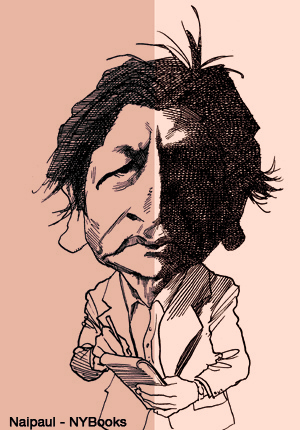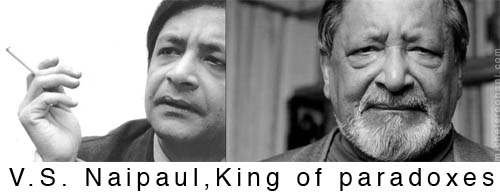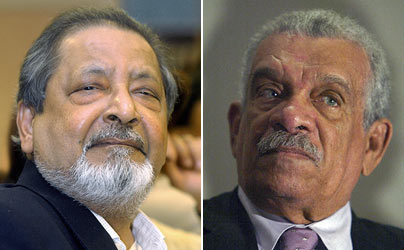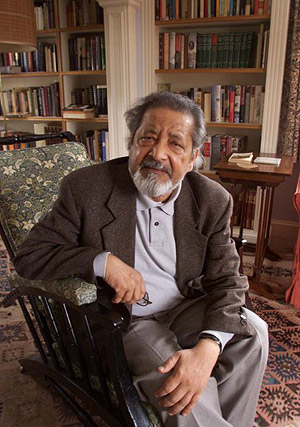I’ve been reading this extremely entertaining book about V.S. Naipaul—The world is what it is—and realizing more and more how his anger towards banality, mediocrity and simple pettiness of people makes sense (of course he is obviously not a nice man). I have written about him before and my interest in him was sharpened after I read in the BBC about this biography of his being published without him changing a word of it. Now, that’s courage…
A good article about the book and the five years it took Patrick French to write it was published in The Nation ; a fascinating glimpse of the mind of the “supreme egotist”.
I find Naipaul’s banter with Derek Walcott amusing; read about it in The Telegraph.
Two Nobel Laureates from the West Indies fighting like children—cute!
Ian Buruma describes him well: “Naipaul’s voice, which some younger writers are tempted to mimic, cannot be defined by citing his opinions on race, the colonial experience, India, literature, or anything else. His views are frequently designed to shock and outrage.”
Cynicism (at its best) jumps at you from every page of French’s book and Sir Vidia’s lucid prose has kept me awake all last week. I empathize when he says: “my life is too short, I can’t listen to banality”.
Like Naipaul, I have refused to engage in wishful thinking all my life and if this makes me a cynic, be it! “The world is what it is; men who are nothing, who allow themselves to become nothing, have no place in it.”
added on 12/23/08—I keep looking for him—just read James Wood’s article, Wonder and Wounded: He is socially successful but deliberately friendless, an empire of one: “At school I had only admirers; I had no friends.”
added on 12/27/08—”Artists cannot claim immunity from decency.” Yasmin Alibhai-Brown
I agree to a certain point with her but I don’t believe that artists should be judged by their personality (ies)—Picasso must have been an impossible man with his lovers but I can’t deny his art…
Is Naipaul “mad, bad and dangerous to know” like Lord Byron was? Read this very good article in Times by Magnus Linklater.




